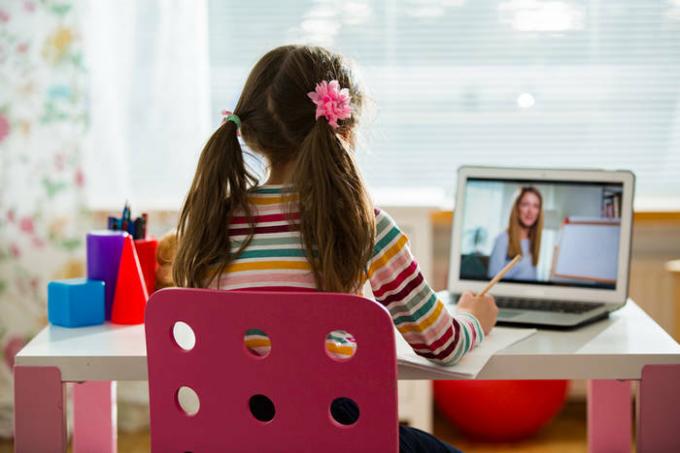How to competently prepare first graders for the first important stage of the educational path? What if the remote control is again? Five actionable tips from psychologists and educators
Tip 1 - learn to listen
More than half of the kids who go to first grade do not know how to listen at all.

More than half of the kids who go to first grade don't know how to listen at all / istockphoto.com
Try to pump this skill at home. It is enough just to give more complicated everyday tasks. For example, do not collect toys, but collect large soft toys in a green box, and a red constructor in this one, and so on.
It is important to play such situations as often as possible, because in conditions of distance learning, the child will have to catch, as they say, on the fly. The teacher explains the subject from the tablet screen, and will not be able to physically focus the baby on the subject.
Tip 2 - master gadgets
Alas, the realities of the coronavirus are such that everyone, young and old, needs to be able to use tablets, computers and educational applications. Try to provide your child with quality gadgets, with at least 10-inch screens.

Computer skills should be taught before school / istockphoto.com
Tip 3 - allow calling names
Now children, especially toddlers, spend more time not in teams, but in the company of their parents, relatives and gadgets. School realities are completely different. There is no greenhouse home environment where everyone respects each other's boundaries, and classmates often use offensive words and teasers in their speech.
Help your child learn to deal with abusers and protect themselves. To do this, provoke such situations - give the child the opportunity to answer you. If it gets lost, offer options for the answer. For example, a fight in the spirit of Disney villains: “You are Malificent,” you say. "And you are Ursula!" etc.
Tip 4 - develop motor skills
Slightly less than half of the kids who come to school do not know how to hold a pen or pencil correctly. It would seem, is this a problem? Actually undeveloped fine motor skills affects the brain's readiness to concentrate and perceive new information. Therefore, it is very important to correct the situation and teach the child to hold a pen, pencil, ruler and brush in his hands!
To practice this skill, try to develop hand-eye coordination. Ball games work well, especially ring shots.
Tip 5 - navigate space
The sense of space is unusual for almost all first-graders. And if the teacher can help at school - to tell you how to step back a couple of cells to the right or up, how to draw diagonally or sideways, then problems may arise in distance learning.
Labyrinths in game rooms are very effective in this regard. Well, or at home, practice playing with dolls and stuffed toys - create moves, tangle of boxes where the toy should come to the finish line.
You will also be interested in:
What to read to a first grader
Choosing a backpack for a first grader


